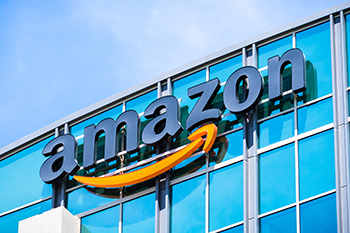How Amazon Paid $0 in Federal Taxes

Jeff Bezos, the founder of Amazon, might be the richest man in America. Coincidentally, Amazon reported revenue of $232 BILLION, earnings before income taxes of $11.2 billion, and a tax rebate of $129 million in 2018.[1] According to an analysis from the Institute on Taxation and Economic Policy, the company in 2017 paid $0 in corporate taxes on $5.6 billion of US income.[2] Any questions? Federal corporate tax is based on profit, not revenue. Amazon avoided paying federal taxes by paying its employees with stock, utilizing the research and development tax credit, and purchasing equipment.
Amazon took advantage of tax benefits relating to excess stock-based compensation deductions to reduce its taxable income. Under section 162 of the US Tax Code, businesses may deduct wages, benefits, and salaries paid to employees. Yet, wages over $1 million paid to directors shall not be deductible for tax purposes. Placing a limit on deductible salary is the IRS’ attempt to discourage outrageous executive compensation. However, companies may deduct compensation paid in the form of stock options or grants.[3] Under the Tax cuts and Jobs Act, such reimbursements lower corporate tax liability as companies become more successful. A business may deduct the cost of stock-based compensation from its taxable income, despite not spending any money to transfer shares. Thus, the higher the share price, the greater the deduction for handing out shares. Amazon’s stock traded at $1,848 per share on April 12, 2019.[4] According to its Securities and Exchange Commission form 10(k), the company reported around $1 billion in deductions for stock-based compensation to employees.[5] Which means, that Amazon avoided paying any corporate income tax in 2018 by leveraging its rising stock price. Paying employees with company stock allows businesses to offer executive compensation and diminish corporate income tax liability.
For additional tax savings, Amazon availed itself of the research and development tax credit.[6] In 2017, the technology retailer spent $22.6 billion globally on research and development.[7] Alexa, each incarnation of Kindle, and the new Echo Show required reliably expensive R&D, which generated $419 million tax break in 2018.[8] In bookkeeping terms, gross profit equals sales revenue minus the cost of goods sold. Amazon increased its costs of goods sold by spending more on research and development. These R&D expenses offset Amazon’s gross profit, which allowed the business to report less income.
Amazon further reduced its taxable income by utilizing a 100 percent deduction for investment in equipment.[9] Add in the $627 million net operating loss carryforward and $1.4 billion of federal tax credits, and its corporate tax liability withered to nothing.[10] Operating earnings equal gross profit less operating expenses and depreciation. By reducing operating earnings to $0, Amazon reduced its taxable income to zero.
Taking advantage of stock-based compensation, research & development credits, and investing in equipment, enabled Amazon to generate earnings before income taxes of $11.2 billion and pay no federal taxes. How a company reports profits and investments determines whether entities and individuals owe taxes. As Amazon demonstrates, it is essential to profit efficiently by minimizing taxes.
[1]https://www.sec.gov/Archives/edgar/data/1018724/000101872419000004/amzn-20181231x10k.htm#sF994DEEFE73D5197B11554E409B8620F.
[2] https://itep.org/amazon-in-its-prime-doubles-profits-pays-0-in-federal-income-taxes/.
[3] https://www.irs.gov/taxtopics/tc427.
[4] https://finance.yahoo.com/quote/AMZN/history/.
[5] https://ir.aboutamazon.com/static-files/ce3b13a9-4bf1-4388-89a0-e4bd4abd07b8.
[6] https://ycharts.com/companies/AMZN/r_and_d_expense.
[7] https://www.forbes.com/sites/walterloeb/2018/11/01/amazon-is-biggest-investor-for-the-future/#212d4f091f1d.
[8] https://www.accountingtoday.com/articles/tax-law-didnt-help-amazon-pay-zero-taxes-in-2018-it-was-just-savvy.
[9] https://www.stock-analysis-on.net/NASDAQ/Company/Amazoncom-Inc/Financial-Statement/Statement-of-Cash-Flows.
[10] https://ir.aboutamazon.com/static-files/ce3b13a9-4bf1-4388-89a0-e4bd4abd07b8.
